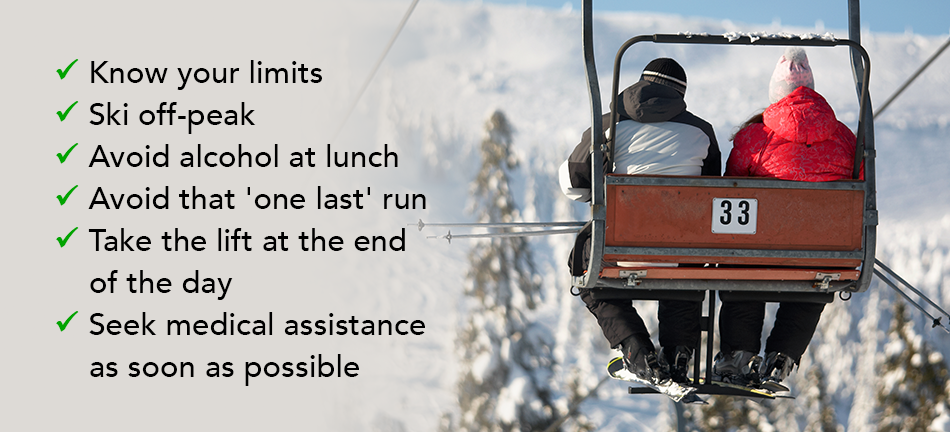Ski Health Advice
Whether you’re a snow sports pro or it’s your first time on the slopes, discover our expert advice to get the most out of your ski trip for your mind, body and soul.
Exercise to build strength
Snow sports are great fun, which is why people return to the slopes each year, but they're also hard work. Whether you're skiing or snowboarding, your thighs, hips and core will be challenged, so it’s a good idea to start working out to build up strength before your trip. Building strength can also help to prevent injury, so we recommend starting training around six weeks before your trip.
Eating well on the slopes
As well as building up your physical strength with exercise, it’s a good idea to eat well before and during your trip. Pushing your limits in unusually cold temperatures requires high-performance foods to replenish calories and other vital nutrients.
Building strength with nutrition
Eating for strength is particularly important while skiing: building new muscle requires the body to synthesise new cells and grow tissue. This is only possible with extra calories, in the form of protein and carbohydrates, in addition to those required for general function.
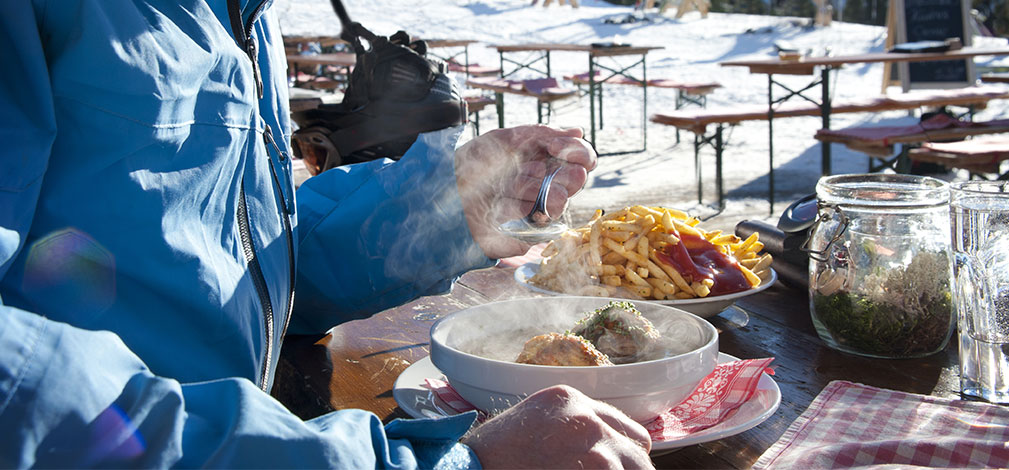
Skin care on the mountain
When you're preparing for a ski trip, you're probably more concerned about the possibility of injury from a fall, but on the slopes your skin is also vulnerable to the elements. Windburn, frostbite, sunburn and, even the dehydrating effects of central heating in your chalet can all irritate skin.
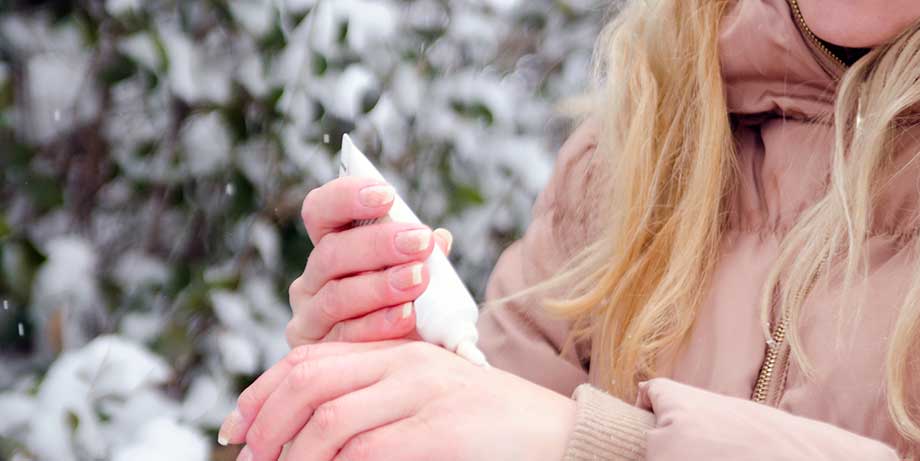
Avoiding dehydration:
- ✓ Get plenty of water - Activity can leave you dehydrated from breathing hard and sweating.
✓ Minimise alcohol intake - Alcohol dehydrates the body and, in the skin, this shows up as dryness.
✓ Avoid hot showers and baths - Hot water can strip natural oils from your skin.
✓ Ask for a humidifier - Counter-act the drying effects of alpine air and central heating with a humidifier in your chalet.
Mind and body training
Achieving sporting excellence takes more than just practical training. If you're taking to the slopes use these mind and body training tips to get the most out of your performance:
- ✓ Build physical strength through exercise before your trip
✓ Fight your fears and boost your confidence by pushing yourself
✓ Use your imagination and pretend you’re on video to boost your performance
✓ Know your limits, then challenge them safely
✓ Acclimatise slowly and start low to avoid Acute Mountain Sickness (AMS)
✓ Take a day to warm up
✓ Breathe deeply to relax the body and mind
✓ Make time to pause and take in the natural beauty of the mountains
✓ Embrace the opportunity to sleep well and rebalance your body clock.
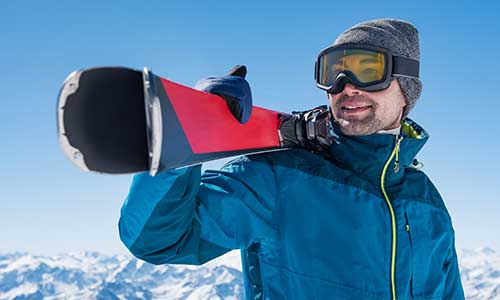
Preventing and treating injuries
By making mindful, sensible decisions you can reduce your chance of injury. If you’ve sustained what you think is a soft tissue injury (i.e. not a broken bone) it’s advisable to rest, ice, compress and elevate (RICE) the injured limb. If you suspect a break or a head injury, seek urgent medical assistance.
Do you know the most common ski and snowboarding injuries?
For snowboarding - It's arms, as people reach out to protect themselves when they skid or fall. For skiing - It's knees, caused by ligaments tears when falling at force.
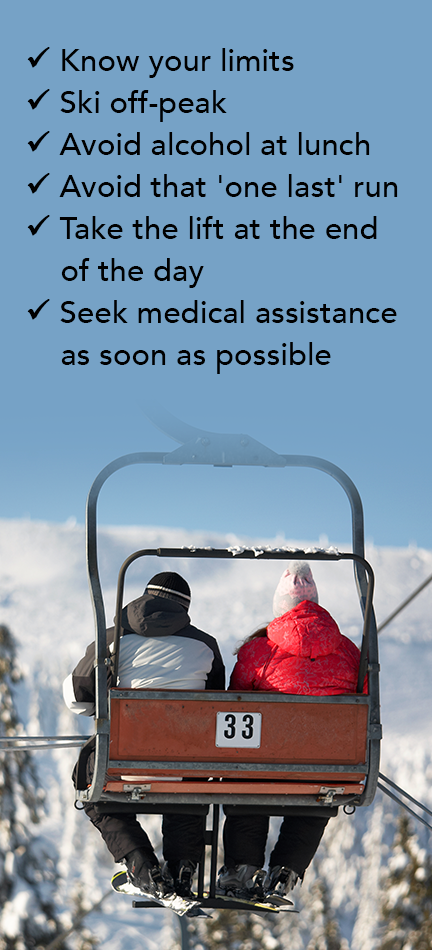




If you do injure yourself on the slopes and find it's not getting any better, physiotherapy can help to improve pain in the short term and prevent long-term problems.
Ski trip health essentials
You’ve booked the trip and sorted the equipment, but what should you pack for your health? There’s nothing worse than getting to the mountains to discover you’ve forgot your sun screen or plasters for those painful blisters, so here’s our ski-health checklist for everything you’ll need:
-
✓
Lip balm with SPF
✓ Sun screen and after sun
✓ Water bottle
✓ Muscle soaks and deep heat pads
✓ Plasters
✓ Antiseptic cream
✓ Joint supports if you need them
✓ Body lotion
✓ Healthy snacks
- ✓
Prescriptions
✓ Female hygiene products if needed
✓ Antibacterial wipes
✓ Glasses or contact lenses
✓ Deodorant
✓ Antihistamine tablets if needed
✓ Antibacterial wipes or sanitiser
✓ Pain relievers


